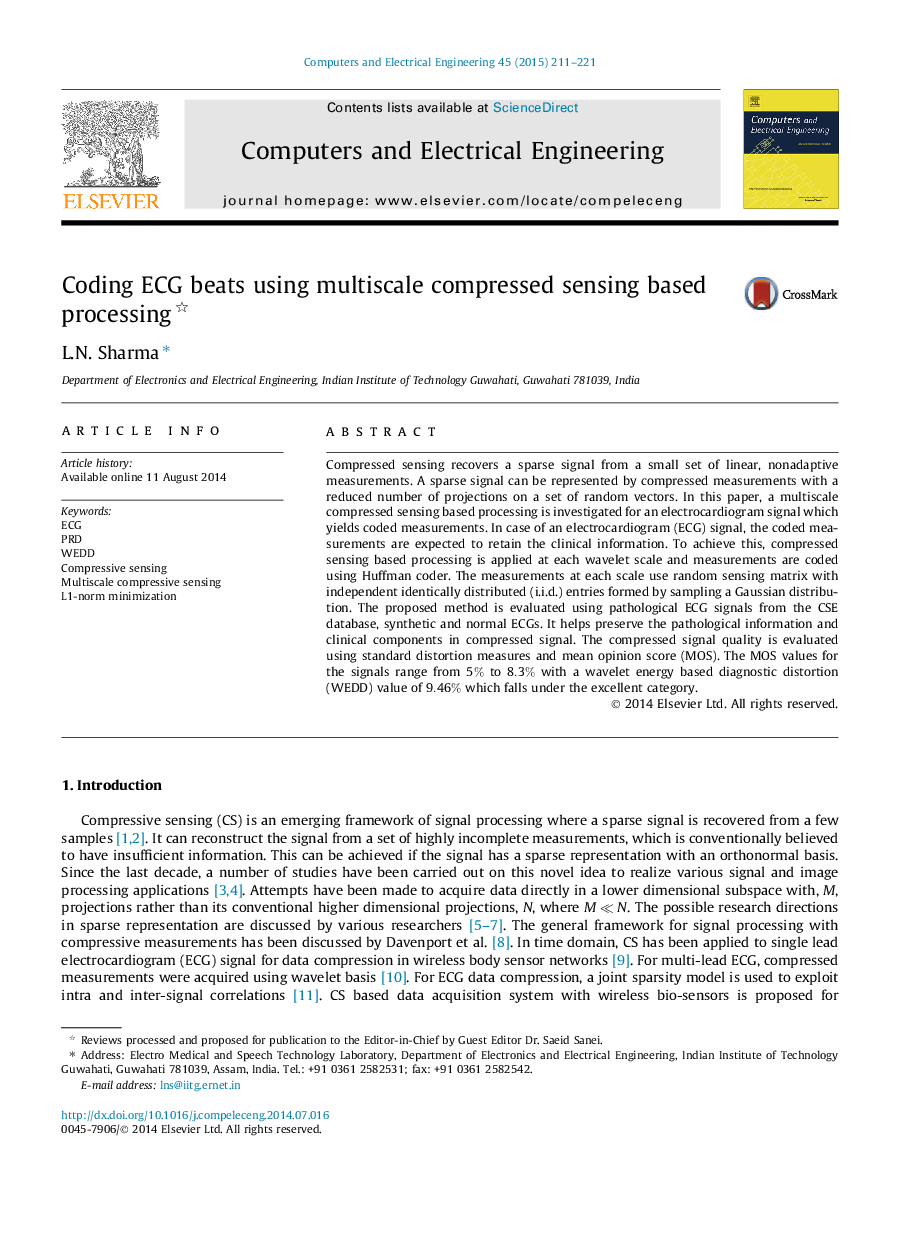| کد مقاله | کد نشریه | سال انتشار | مقاله انگلیسی | نسخه تمام متن |
|---|---|---|---|---|
| 453679 | 694993 | 2015 | 11 صفحه PDF | دانلود رایگان |

• Multiscale compressive sensing based processing is applied for Electrocardiograms.
• The wavelet coefficients at different subbands are sparse in nature.
• Compressed measurements are taken at wavelet scales and measurements are encoded for further compression.
• Method is evaluated using pathological ECG signals from CSE database, synthetic and normal ECGs.
• Distortion introduced is evaluated by quantitative and qualitative analysis like PRD, WEDD, RMSE and MOS.
Compressed sensing recovers a sparse signal from a small set of linear, nonadaptive measurements. A sparse signal can be represented by compressed measurements with a reduced number of projections on a set of random vectors. In this paper, a multiscale compressed sensing based processing is investigated for an electrocardiogram signal which yields coded measurements. In case of an electrocardiogram (ECG) signal, the coded measurements are expected to retain the clinical information. To achieve this, compressed sensing based processing is applied at each wavelet scale and measurements are coded using Huffman coder. The measurements at each scale use random sensing matrix with independent identically distributed (i.i.d.) entries formed by sampling a Gaussian distribution. The proposed method is evaluated using pathological ECG signals from the CSE database, synthetic and normal ECGs. It helps preserve the pathological information and clinical components in compressed signal. The compressed signal quality is evaluated using standard distortion measures and mean opinion score (MOS). The MOS values for the signals range from 5%5% to 8.3%8.3% with a wavelet energy based diagnostic distortion (WEDD) value of 9.46%9.46% which falls under the excellent category.
Figure optionsDownload as PowerPoint slide
Journal: Computers & Electrical Engineering - Volume 45, July 2015, Pages 211–221